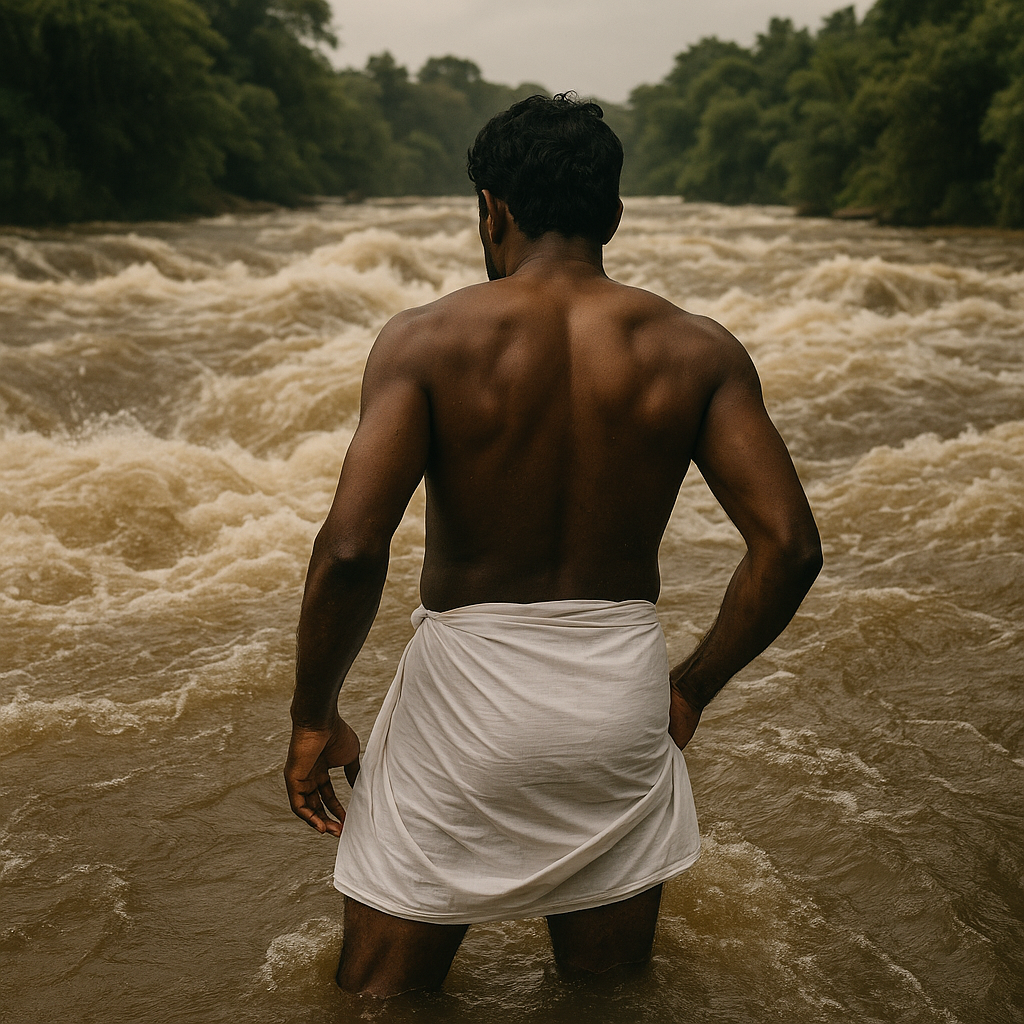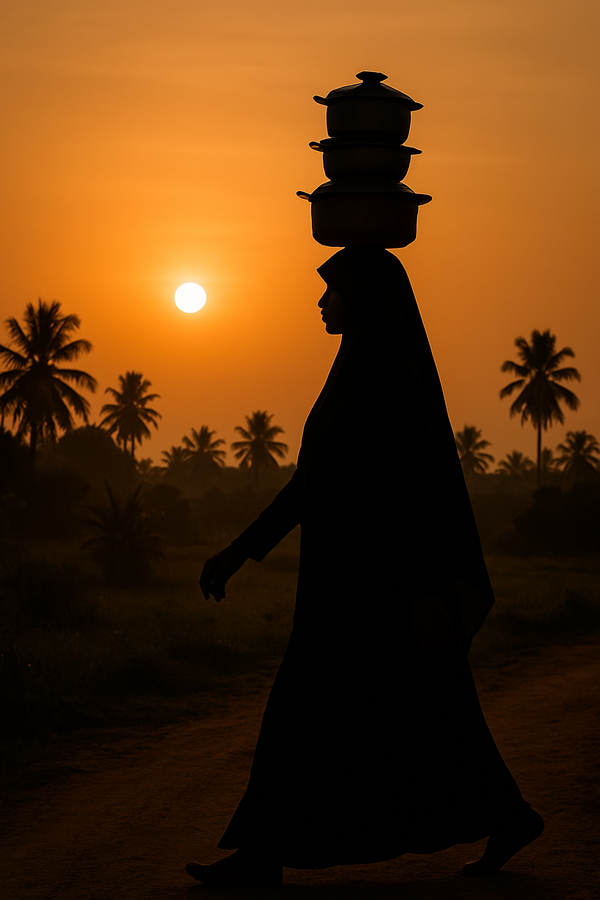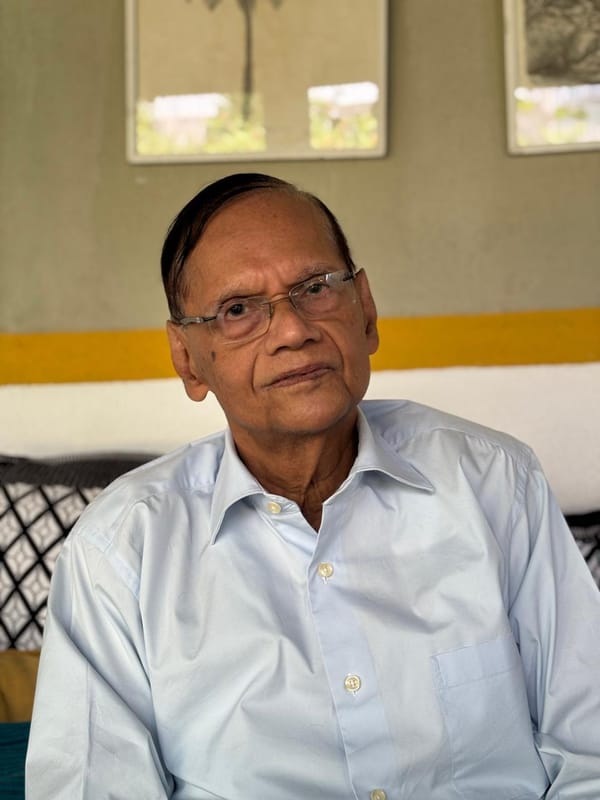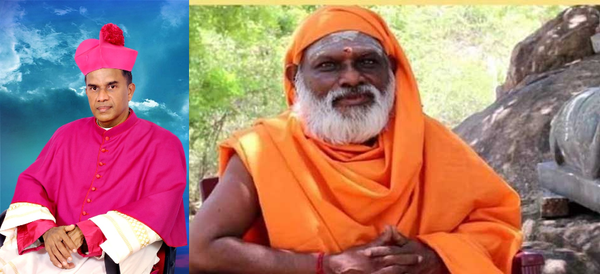Translated from the original Tamil short story ticaikaḷ (திசைகள்) from his 1992 collection of short stories by S.L.M. Hanifa. The original collection is available at noolaham.org. If you have any questions, please contact ez.iniyavan@gmail.com. Co-translators: eḻuttukkiṉiyavaṉ and Fasmila Raviraj.
Māntarāṟu river rampaged with full ferocity, like a stampede of elephants in musth.
Manikkam’s eyes were fixated on the treacherous maelstroms appearing here and there on the river’s surface, only to disappear again. He shook himself from his reverie, securely tied the basket of betel leaves onto his head and waded into the river.
Summoning all his strength to his forearms, he swam forward, pushing the river water behind with his arms. A giant maelstrom suddenly materialized beside him, throwing him off balance.
“Murukā!” he gasped, calling out to his favorite deity. The exclamation must have given him a new impetus; he reached the far shore of the river in just four strokes.
He panted, his collarbones straining with effort. Collapsing onto the sandy beach, he removed the towel from around his waist, wrung out the water, and dabbed his face and head with it.
Carefully, he removed the basket of betel leaves from his head. The leaves in the basket had become moist, along with the tobacco and lime. Although he found the mixture disgusting, he helped himself to a mouthful and began chewing.
After a brief respite, he stood up, wrung the towel once more, and draped it around his shoulders. The roads, drenched in the torrential rain, lay listlessly like a leather belt chewed up by a dog.
As if that were not enough, the roads were scarred with ruts left behind by bullock-cart wheels.
Rough stones and gravel pricked his bare soles.
‘My Lord! When do I get to go home?’ he thought, as images of his wife and tiny tots flashed across his mindscape.
As he climbed up onto the road at Mookkar-stone junction and started walking downhill, he could hear the goods train rumbling along at a distance.
He quickened his stride.
The rice-paddy field lay shrouded in the embrace of the dark night’s monster.
“Dēy! Who’s there?” he mumbled as he bumped into the figure that emerged from the darkness.
“Aaa! Is that our Mustafa kākkā? Where are you off to at this ungodly hour, kākkā?” he asked, his voice drawling, betraying his exhaustion.
“Māṇikkan! I am heading to Mylavettuvan. Yesterday, I forgot my umbrella at Abdul Hameed’s store. But leave that aside, how is the water situation on the river? Is it hectic?”
“Don’t ask. Looks like this storm is intent on destroying us. The river’s running riot. I don’t think the weather is going to let up soon.”
“No kidding. It has been coming down for three months. The blasted sky. This week, we’re planning to hold a kantūri ceremony in the name of the Uchchivadakkal avuliyā saint.”
A blinding bolt of lightning flashed on the horizon as if to put a full stop to their conversation, It made Māṇikkam blink involuntarily. Moments later the noise from that corner of the sky sounded as if the sky was collapsing over there.

The thunder drowned out Mustafa kākkā’s words. Māṇikkam resumed his brisk walk.
Like a bewildered damsel, the moon submitted itself to the menacing dark nimbus clouds.
A rooster crowed in the distance, immediately joined by a few more.
‘It will be dawn by the time I get home,’ thought Māṇikkam as he stood at the gates of the pōdiyār, his landowner boss.
“Who’s there? Is that you, Māṇikkam?” the pōdiyār called out. Even in the grogginess of the rainy season morning, his ears recognized Māṇikkam by his voice. He retrieved a bunch of keys from under his pillows and opened the portico door. The flashlight in his hands lit up the ground around Māṇikkam’s feet.
“How is it going, Māṇikkan? What’s the river like? Has the threshing yard been flooded?” The pōdiyār got right to the point.
In the shade of the faint light, Māṇikkam gaped at the pōdiyār’s face displaying an eagerness to get the threshing started forthwith.
Māṇikkam felt a certain sultriness tinged with a nameless pain sprout within him.
After all, he was the one who planted the seeds!
“The field is under ankle-deep water. No one is going to get any threshing done any time soon,” his voice dripped with frustration and resentment.
“That’s true. Where is the gun?”
Māṇikkam felt as if he had been bitten by a cobra. His tongue refused to move off the roof of his mouth.
“I left it in the shed.”
The pōdiyār’s hand slapped his cheek hard.
“You stupid mongrel, don’t you have any sense? You son of a bitch!” The pōdiyār’s screams roused his wife from her slumber.
Through the slightly ajar portico door, she gaped at her husband and Māṇikkam and turned her gaze towards the kitchen. For some reason, she did not like that at that moment her husband was fuming at Māṇikkam.
Māṇikkam was more than just the forester for Mookkan pōdiyār. He was privy to every aspect of the pōdiyār’s life. The pōdiyār’s dear son was a mere tot when Māṇikkam came to work as a forester. Very soon, the boy was going to be a father himself. The intervening twenty-two years seemed like just twenty-two days as far as Māṇikkam was concerned.
Whenever the pōdiyār exploded with anger, he would grab the nearest farm implement to vent his anger on Māṇikkam’s body.
He lost track of the various weapons that he had had to face---yokes, garden poles, spade handles. But he would forget the beatings before the wounds even healed.
Māṇikkam had such a big heart. But no matter how hard he worked, the pōdiyār’s nature never let him be satisfied with Māṇikkam’s work. Thinking about Māṇikkam and the gun made the pōdiyār even more incensed, his face red, ready to explode.
“Let’s grab an umbrella and head to the market. Last night’s downpour may have washed away the harvest.”
Mookkan pōdiyār walked ahead, trying to position his body within the cover of his umbrella. Just as he set foot on the street, his right-hand man, Avakkan pōdiyār suddenly materialized beside him.
“Pōdiyār. Let’s trundle over to Port Puliyadi to see what the floods look like.” Mookkan pōdiyār’s nostrils flared in response.
“So, what are we to do after seeing what the floods look like? Are we going to erect a canopy to cover the sky?”
Avakkan pōdiyār lifted the bottom hem of his sarong and tucked it around his waist so that the sarong hugged his knees. Then he took the towel hanging on his shoulder and wrapped it around his head.
As they turned a corner, they saw the river foaming and bubbling, as bundles of rice-paddy sheaves floated away on the fast-moving water.
“Chē! This darn rain! Each of those bundles is carrying away four liters of rice paddy. This rainy season, each liter would’ve fetched at least fifteen rupees!” The anguished voice betrayed the deep frustration.
For the rest of the day, dark clouds held the area in their tight embrace, blurring the line between day and night.
From the nooks and crannies of the village, tears and moans slowly rose as worries about stranded husbands and sons took hold.
Little cloth bundles filled with spare coins and raw rice began to hang from roof trusses, as offerings pleading for the safe return of loved ones.
The incessant rain continued for two whole days.
On the third day, a motorboat tore through the floodwaters toward the fields, carrying some village bigwigs.
Mookkan pōdiyār sat in the boat enveloped by a deep sorrow.
For two whole days, his heart writhed in agony, like a fish out of water.
“Where did Māṇikkan go? Lord, save him!” Like him, every pōdiyār on the boat was silently praying to their own gods. A sudden maelstrom appeared, dragging the boat toward a massive terminalia tree and bringing it to a halt beneath its tangled foliage. The boat shuddered as it came to a stop.
Overhead, just within reach, was a sight that transfixed their eyes.
Māṇikkam’s body swayed gently, hanging upside down from a branch.
His skin was mottled with white sores. The eye sockets were empty—fish must have gotten to them already.
Above the corpse, a two-barreled gun, secured to a branch with a towel, pointed toward them as if targeting them.
1976










